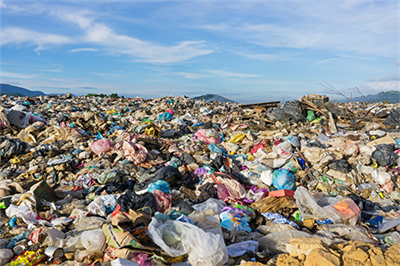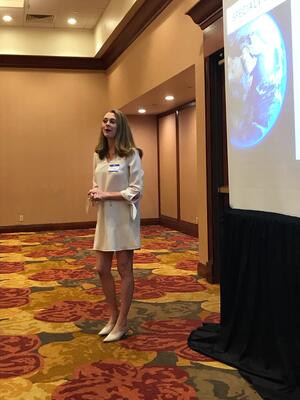 Think globally, act locally.
Think globally, act locally.
That was the attitude at TLMI’s Saving Dollars by Avoiding Landfill Avoidance pilot event in St. Louis last week. Global sustainable waste management is a huge feat that begins with strategic local actions. For instance, referring to leftover materials as “by-product” instead of “waste” is a necessary mindset shift to insinuate that the materials left over after use of a product are in fact valuable and should not just be tossed away. The logistics involved in actually extracting the value from by-products is the complex part. This is why a personal atmosphere with local recyclers and local businesses in the same industry is so valuable.
There is a lot to consider when trying to avoid sending materials to the landfill. Recycling and waste to energy strategies are both very material specific. Different infrastructure is necessary for breaking down different things, and not all industries' paths to zero waste will be alike.
For the tag and label sector of the printing industry, much of the by-product is paper-based — spent liners, cores, etc. Much of this, even that coated with silicone, can be recycled and made into new product. For the materials that cannot be recycled, sending them to a waste-to-energy plant may be the next best thing. At the TLMI Lunch and Learn, we heard from Convergent Energy, a waste-to-energy plant, who explained how waste to energy is different than incineration in that only selective materials are allowed in. Any materials that would release toxic chemicals when burned, are of high water content, or just simply don’t burn well, are excluded — unlike in incineration.
This event was a good way to break down the options available that were specific to the printers in the St. Louis area. Attendees were able to focus on a more precise waste stream, on a smaller scale, and get answers from recyclers in their area as well as bounce ideas off their peers. This intimate setting allowed people to get down to specifics and find practical, feasible solutions to avoid the landfill and ideally save money in the process.
The arguments for avoiding landfills go beyond the serious environmental impacts:
Environmental Case
Landfills are the third highest contributor of methane, following petroleum and natural gas systems and farms. Methane is roughly 25 times more potent as a greenhouse gas than CO₂ is. Recycling, even if materials must be transported a longer distance, offsets the amount of greenhouse gases entering the atmosphere by reducing material put in landfill. It also counteracts the emissions from raw material extraction. Similarly, waste to energy offsets the damage done from extracting and burning other fuel sources. When done correctly, waste to energy is about as clean as natural gas.
Societal Case
Local areas surrounding landfills are suffering from leachate contamination in groundwater and decreased air quality. Poor waste management leads to increased pollution of the land, water and air.
Business Case
It is becoming more expensive in certain areas to send waste to the landfill because they are nearing capacity so quickly. In larger cities or remote areas, it has reached $300 per ton. Many brands are also demanding more powerful sustainability initiatives from the manufacturers they work with. Almost all of the attendees at the event expressed they have received questions about their waste management systems and felt pressure by customers to become a responsible zero-waste facility.
The dynamic discussion among the attendees was very informative and everyone left with more knowledge on this subject than they arrived with. In my observation, the most relevant lesson is that any recycling-related question will have the same answer: “it depends.” Recycling is a very material-specific process in which specified education is necessary to inform each industry of the options available near them.
 Exchanging ideas with peers in both your geographic area and industry fosters collaboration, camaraderie and trust within your community. It’s beneficial to understand other company’s challenges, such as how to make sustainable practices like recycling a habit for the people in the work place, how to build a culture of care, what materials can I even recycle, what materials should I stop using because they are not recyclable, how do I set up a milk run system if I don’t have storage space for my by-product or I don’t produce enough by-product material, and so on. Businesses in your industry no doubt have similar challenges to you. Having a discussion about it may just lead you to your solution.
Exchanging ideas with peers in both your geographic area and industry fosters collaboration, camaraderie and trust within your community. It’s beneficial to understand other company’s challenges, such as how to make sustainable practices like recycling a habit for the people in the work place, how to build a culture of care, what materials can I even recycle, what materials should I stop using because they are not recyclable, how do I set up a milk run system if I don’t have storage space for my by-product or I don’t produce enough by-product material, and so on. Businesses in your industry no doubt have similar challenges to you. Having a discussion about it may just lead you to your solution.
Thank you TLMI for having us and your local St. Louis friends join in on an educational and very helpful conversation. We at SGIA are proud sponsors and are excited for more recycling summits to come.